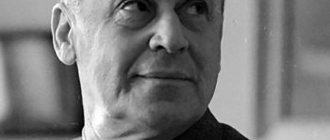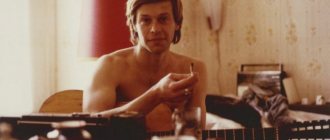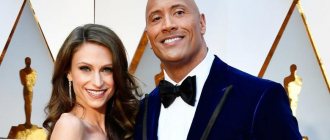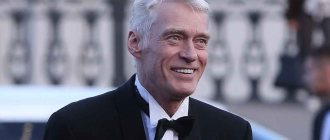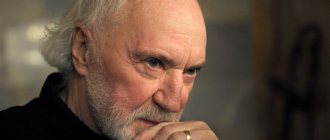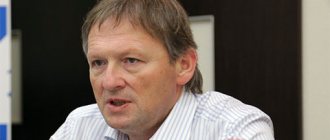The fact that Boris Johnson became infected with coronavirus became known on March 27. However, he stayed at home, carried out his prime ministerial duties and even recorded several video messages to the people. During them, he said that he felt well, but complained of a fever.
Important British Prime Minister Johnson, sick with coronavirus, spent the night in intensive care
The British Prime Minister became worse on the 10th day of his illness. Johnson had to be hospitalized in a London clinic.
British media add that Johnson underwent tests and examinations in the hospital. At first it was reported that he would have to undergo artificial ventilation, but this was never necessary.
The night of April 7 was the first he spent in intensive care. In general, there were no complaints about his health after that.
Johnson is known for managing Brexit. He is an impulsive, witty and shocking politician. At one time he was the head of the British Foreign Office, the mayor of London, and before that a journalist.
Education
European School of Brussels, Eton College and Oxford University (studied classical literature).
Johnson's closest friend at Oxford was former British Prime Minister David Cameron. Both were considered daredevils at the university: Johnson and Cameron were members of the so-called Bullingdon Club, which, in essence, was a society of drinkers and rowdies. The friends' favorite pastime was to dress up nicely, drink in a bar, destroy some restaurant, and then honestly write out a check for the damage caused.
Working as a journalist
Johnson began his career in this field as a trainee reporter at the Times newspaper. He worked there for only a year: Johnson was fired for falsifying a quote from his godfather Colin Lucas. The latter later became Vice-Chancellor of Oxford University.
He worked for the newspapers Wolverhampton Express & Star, The Daily Telegraph, Spectactor (he became editor of the latter). Johnson's articles were often sensational and often controversial. During his time at Spectactor he rose to fame as a leading Eurosceptic and developed into Prime Minister Margaret Thatcher's favorite author.
Policy
In 2001, Johnson was elected to the House of Commons of the British Parliament from the constituency of Henley-on-Thames. And after 3 years, the politician was appointed Minister of Culture in the shadow cabinet of the opposition. In November 2003, Johnson became vice-president of the UK Conservative Party.
From all these positions in the Conservative Party, Johnson was fired in November 2004. The politician was accused of lying about an extramarital affair with one of his employees in The Spectator's newspaper. Johnson himself never admitted these accusations.
With the election of the new Conservative leader David Cameron, Johnson was appointed education secretary in the opposition shadow cabinet.
In 2008, Johnson won the mayoral election in London. While serving as mayor of the British capital, he moved around the city mainly by bicycle. That’s why London’s street bike rentals (in fact, they appeared under Johnson) are called Boris bikes by residents.
See also In Britain they said they could “turn around” the coronavirus epidemic in the next 12 weeks
Johnson and Schwarzenegger on bicycles / Photo ru.sputnik.kg
Among Johnson's achievements as mayor of London, analysts cite a 20% reduction in crime in the city and the creation of extensive cycling infrastructure. However, the mayor lacked practicality: he failed to satisfy the high demand for affordable housing, but managed to launch a cable car, build a 180-meter ArcelorMittal Orbit attraction mountain and proposed building an airport on the Thames marshes.
In 2020, Johnson became British Foreign Secretary. He resigned after 2 years due to disagreement with the soft strategy of then Prime Minister Theresa May in negotiations with the EU on Britain's exit from its membership.
Appointment of Boris Johnson as Foreign Secretary
Photo: Boris Johnson performs La Marseillaise at a reception with the French ambassador during his first official visit as Foreign Secretary. Photo dailymail.co.uk
However, Gove's heinous act did not go down well with his party colleagues and he also dropped out of the game. And Johnson, who left the race, supported the candidacy of Andrea Leadsom , then Minister of Environment and Food, for the post of prime minister. But she soon refused to participate in the elections. As a result, the only serious candidate for the prime minister’s post was Theresa May, the then British Home Secretary, who took this post on July 13, 2020 .
Having become prime minister, unexpectedly for many, Theresa appointed Johnson foreign secretary , which caused a real stir. Newspapers immediately began to quote dubious statements by the newly appointed minister regarding other countries and their leaders. Some have suggested that this was a cunning tactical move on the part of May, who has never been a supporter of Brexit: to make Boris her puppet in the process of leaving the European Union and shift all the problems associated with it onto his shoulders.
Whether this is true or not, only time will tell. And we can only watch the progress of this play, which will definitely still contain a lot of interesting things.
Brexit
In 2020, Johnson supported Brexit and became one of the leaders of the campaign movement - he traveled around the country on a bus with the slogan “We are sending 350 million pounds to the EU for a week. Let's fund our National Health Center instead."
The figure Johnson used in his campaign was later refuted: in fact, Britain’s contributions to the EU amounted to about 160 million pounds, experts calculated.
On the topic The first days after Brexit: how residents of the monarchy are recovering from a historic decision
A bus with campaigning for Britain's exit from the EU, on which Johnson traveled / Photo bbc.com/russian
In addition, during that period the politician more than once allowed himself to make harsh statements of a racist and sexist nature. Once in his column for The Telegraph, Johnson called the Africans "blacks." Later he compared Muslim women in burkas to bank and mailbox robbers.
In July 2020, Boris Johnson took over as Prime Minister of Great Britain. He promised that he would withdraw the country from the EU. And so it happened: Great Britain, which had been a member of the European Union for 47 years, officially left the organization on February 1, 2020.
Boris Johnson's childhood
In the photo: Boris Johnson (center) as a child with his family.
Photo thetimes.co.uk Alexander Boris de Pfeffel-Johnson - this is what Boris's full name sounds like - was born on June 19, 1964 in New York, where his father then worked, into a family of wealthy Englishmen from the upper class. His father, Stanley Johnson, was a politician and writer, and his mother, Charlotte Johnson Wahl, was an artist. For a long time, Boris, in addition to British citizenship, also had American citizenship, which he renounced only last year in order, in his words, to demonstrate his loyalty to Great Britain.
Boris jokingly calls himself a “melting pot,” because he has a lot of blood mixed in him: among his ancestors there are Turks, Circassians, Americans, French, and his great-grandfather had Russian-Jewish roots. It is interesting that Boris is connected by blood ties with the royal family: on his mother’s side he is a distant descendant of King George II of Great Britain .
Boris grew up with two brothers and a sister and, as a child, acquired the habits of the English elite, becoming addicted to fox hunting. As a child, he showed far-reaching ambitions, imagining himself in his dreams as a “world king.” As a child, the future politician suffered from severe hearing loss and underwent surgery during which special tubes, called grommets, were inserted into his ears.
Boris's father was constantly traveling, and his mother and nannies were mainly involved in raising the children. The family often moved from city to city and from country to country. The Johnsons' marriage was not a happy one: Charlotte suffered from clinical depression and was hospitalized in 1975 after a nervous breakdown. Left unattended by their mother, the children were sent to study at the prestigious boarding school Ashdown House . In 1978, Boris's parents separated, and in 1980 they finally divorced.
Personal life
Johnson was married twice. The first wife is a model and the daughter of millionaire landowner Allegro Mostyn-Owen. At the wedding, Johnson made a prank at the altar: he appeared in trousers that belonged to Conservative MP John Biffen. And an hour after the ceremony, I managed to lose the ring I had just put on my finger. The couple's marriage lasted 6 years.
On the topic The pregnant fiancee of Boris Johnson, who is sick with coronavirus, has temporarily isolated herself
Just 12 days after the divorce, Johnson married lawyer Marina Wheeler , with whom he studied at the European School in Brussels. The couple had 4 children. Their marriage seemed quite prosperous until it turned out that Johnson had been secretly dating journalist Petronella White for 4 years, who managed to have 2 abortions during this time. Having learned about this, Wheeler refused to let her husband even onto the threshold of their house, but later the couple were reunited.
Boris Johnson with his ex-wife Marina / Photo islandfm.com
Consequently, he became the first British Prime Minister to be divorced from his wife and in a relationship with another woman at the time of taking office. Her name is Carrie Symonds and she is 23 years younger than Johnson. Now Boris Johnson's girlfriend is pregnant.
In pink - Boris Johnson's new lover Carrie Symonds / Photo BBC
Boris Johnson's school days
Pictured: Boris Johnson while studying at Eton College. Photo: www.dailymail.co.uk
Teachers spoke of Boris as a quiet and diligent student. At school he took to playing rugby and had a keen interest in ancient Greek and Latin. Young Boris liked to study, but he was outraged by the fact that teachers used corporal punishment (in the 70s of the last century this was still allowed).
In 1977, Boris won the prestigious Queen's Scholarship to study at the elite Eton College. It was there that he became the “eccentric Englishman” that he is known as. While studying at Eton, Boris changed his Catholicism to the Anglican faith. Teachers complained about his idleness, complacency and laziness, which, however, did not prevent him from becoming a very popular and well-known figure at school.
His friends were mainly from wealthy families, with many of whom he later moved to the famous Oxford University. Among them were Charles Spencer - Princess Diana's - and David Cameron , the future Prime Minister of Great Britain.
Boris was a good student, demonstrating brilliant success in English and classical studies, subsequently becoming the leader of the school debating club and editor of the school newspaper The Chronicle. After finishing school, he took a gap year to study English and Latin at the elite Geelong Grammar School in Australia. By the way, the so-called “gap years” are very popular among graduates of English private schools: young people usually use this time to travel, receive additional education and learn work skills, usually abroad.

